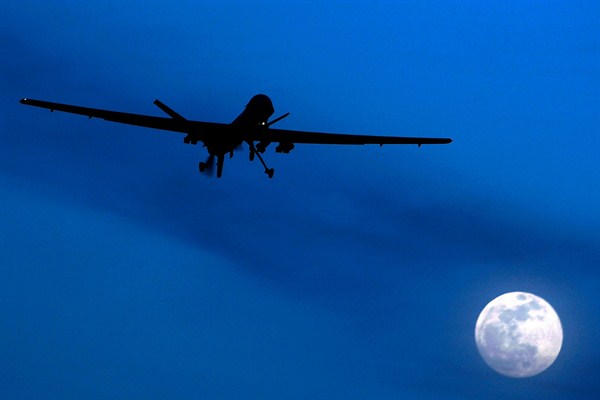Drones have captured the imagination of popular culture and the attention of international law experts. Amazing access to real-time intelligence enables precision weaponry, but the same information can inhibit decision-makers from acting by raising the ethical and political costs of doing so. Legal scholars concede that international law has not yet caught up with this reality.
The anguish that drones cause among decision-makers is the subject of the new movie “Eye in the Sky.” It focuses in particular on how the same data that make drones such potent weapons can paradoxically inhibit, even paralyze authorities who make life-and-death decisions.
The movie offers a compelling window into how military officials have a professional clarity about following rules of engagement and legal authorities, while civilian leaders agonize about the moral and political costs of an attack, even when the authority to act has been established. It does not make either side the hero or the villain, but shows how this kind of war is less abstract and deeply human. A drone strike might be suspended because of the likelihood of a single civilian casualty. In an earlier time, such casualties were always present as a hypothetical possibility, but now decision-makers sitting in situation rooms in Washington and other world capitals can see the faces of the possible victims of a distant strike.

